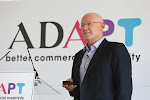Commercial organisations may wish to consider this model:
http://img.photobucket.com/albums/v480/maxblumberg/PeopleValue.png
It argues that people decisions ultimately underpin total shareholder returns (TSR). Specifically, the effect of people on TSR is mediated by Quality, Innovation, Producvity and Customers. (Few consultants actually go so far as to try and measure this - but they really should to justify their interventions).
But people really the biggest TSR driver in most organisations? Consider instead this asset-based model of the enterprise:
http://img.photobucket.com/albums/v480/maxblumberg/Humancapital.jpg
This model argues that the sum of tangible assets, intellectual capital (including human capital) and financial capital drive TSR. Can you swear for sure that the effect of human capital accounts for most of the variance in TSR? For example, in a very automated environment, it may be that machines account for more TSR than people. Or in a financial services environment, perhaps financial assets generate larger returns than people. For example, I remember the CEO of Barclays once telling to me (long ago in the 80s I grant you) that their financial asset base was so large that it made money in spite of employee interventions. I asked what he meant by this and he explained that if it was mainly when employees meddled with their huge financial assets that they lost money!
The most common argument for the power of human capital - the domain of the IO psychologist - is that ultimately, all decisions about enteprise assets - acquisition, maintenance, and disposal - are made by people. But can we acknowledge at least that sometimes, just sometimes, non-people assets can generate higher returns than the people who set them up?
Subscribe to:
Post Comments (Atom)


No comments:
Post a Comment